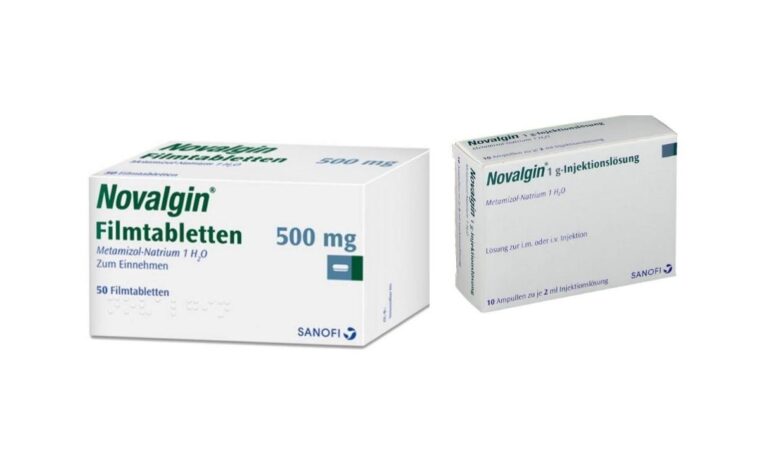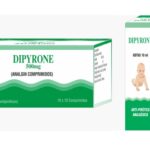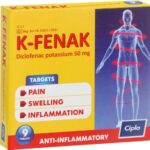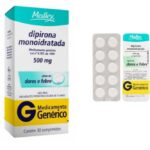Novalgin: Uses, Dosage, Side Effects, Why it was Banned!

What is Novalgin used for?
Novalgin is a brand of metamizole a medication in the ampyrone sulfonate family of medicines. It was patented in 1922 and was first used medically in Germany. For many years, it was available over-the-counter in most countries, before its withdrawal due to severe adverse effects. Over-the-counter (OTC) medications are drugs that you can buy without a doctor’s prescription.
Novalgin is a non-steroidal anti‐inflammatory drug (NSAID) that helps reduce inflammation and is often used to relieve pain, reduce inflammation, and bring down a high temperature. They’re often used to relieve symptoms of headaches, painful periods, sprains and strains, colds and flu, arthritis, and other causes of long-term pain.
How Novalgin works
The exact Novalgin mechanism of action is unknown, although it is believed that inhibiting brain and spinal cord prostaglandin (fat-like molecules that are involved in inflammation, pain, and fever) synthesis might be involved. Recently, researchers uncovered another mechanism involving being a prodrug. The therapeutic effect of Novalgin sets in 30-60 minutes after oral administration of the drug.
How Novalgin is used
The recommended adult dose of Novalgin is 500mg taken 3 times daily but limited to a maximum of 4000mg per day for safety reasons. The Novalgin injection is administered at a dose of 250mg to 500mg 3 times daily but also limited to a maximum of 2g per day for safety reasons.
What happens if I miss a dose?
Take the missed dose as soon as you remember. Skip the missed dose if it is almost time for your next scheduled dose. Do not take extra medicine to make up for the missed dose.
What happens if I overdose?
Seek emergency medical attention or call the Poison Help line at 1-800-222-1222.
What to avoid
Avoid alcohol. Heavy drinking can increase your risk of stomach bleeding.
Why was Novalgin banned in the United States?
In 1977, the US Food and Drug Administration (FDA) banned Novalgin for causing a blood cancer-like effect on roughly one out of 30,000 consumers. Trials showed that the drug destroys white blood cells, thus decreasing human immunity against diseases and infections.
In addition, the use of Novalgin was found to be associated with abdominal discomfort, maculopapular rash, Stevens-Johnson syndrome, Lyell syndrome, agranulocytosis, hypotension, bronchospasm, arrhythmia, and allergic reactions. Agranulocytosis, thrombocytopenia, anemia, aplastic and hemolytic anemia, and leucopenia significantly limited its utilization in everyday practice. Agranulocytosis is rare, but life-threatening ADR. The risk for metamizole-induced agranulocytosis is estimated as 0.06 and 1.1 cases per million users per week of treatment.
Novalgin is also banned in other parts of the world including Australia, Japan, Canada, Sweden, and France.
Nevertheless, Novalgin is one of the most commonly used medications for the treatment of postoperative pain, colic pain, cancer pain, and migraine, and in many countries (eg Russia, Spain, Mexico, and in many parts of South America, Asia, and Africa) it remains a popular non‐opioid first‐line analgesic, either by prescription only, as in Germany and Spain, or non‐prescription (over the counter (OTC)), as in Bulgaria and Mexico.
What are the side effects of Novalgin?
Novalgin can cause serious side effects which include:
- Abdominal pain
- Acute kidney failure
- Agranulocytosis
- Anaphylaxis,
- Aplastic anemia
- Blood-related toxicity (blood dyscrasias)
- Bronchospasm
- Burning sensation
- Dizziness
- Dyspepsia
- Erythema
- Interstitial nephritis
- Local edema
- Nausea
- Porphyria.
- Toxic epidermal necrolysis
- Vertigo
- Vomiting
What drugs can interact with Novalgin?
If your doctor has directed you to use this medication for diabetes, your doctor or pharmacist may already be aware of any possible drug interactions and may be monitoring you for them. Do not start, stop, or change the dosage of any medicine before checking with your doctor, health care provider, or pharmacist first.
Taking Novalgin with any of the following medications can affect how the medication works or increase the risk of severe side effects.
- Allopurinol.
- Anticoagulants
- Antidepressants
- Anti-diabetic agents
- Barbiturates
- Bupropion
- Chlorpromazine
- Ciclosporin
- Glutethimide
- Lithium
- MAOIS
- Methotrexate
- Oral contraceptives
- Phenothiazines
- Phenylbutazone
- Phenytoin
- Sulfonamides
- Warfarin
This document does not contain all possible interactions. Therefore, before using this product, tell your doctor or pharmacist of all the products you use. Keep a list of all your medications with you, and share the list with your doctor and pharmacist. Check with your physician if you have health questions or concerns.
Keep out of reach of children. In case of overdose, get medical help or contact a Poison Control Center immediately.
Frequently asked questions about Novalgin
Is Novalgin a strong painkiller?
Novalgin is a strong non-steroidal anti-inflammatory drug (NSAIDs), it starts working within 30-60 minutes after taking it. Novalgin isn’t necessarily stronger than other prescription-only NSAIDs, but many people find it provides relief for a longer period.
Is Novalgin stronger than ibuprofen?
Novalgin is generally considered a stronger medication than ibuprofen. Both medications belong to a class of drugs called non-steroidal anti-inflammatory drugs (NSAIDs). But, Novalgin is only available as a prescription, and ibuprofen is available as both over-the-counter and prescription.
Should Novalgin be taken in the morning or night?
It does not matter when you take Novalgin as long as you take it at about the same time every day. It’s best to take this medication with food or a small snack in order to prevent stomach upset.
Can a pregnant or breastfeeding woman take Novalgin?
Always consult your doctor or pharmacist before taking any medicine during pregnancy or breastfeeding. It is recommended not to administer Novalgin during the first and last trimester of pregnancy. In the second quarter, it should only be used once the doctor has evaluated the benefit/risk ratio.
The metabolites of Novalgin are excreted in breast milk, so breastfeeding should be avoided for 48 hours after its administration.
Can Novalgin make you gain weight?
Weight gain is not common with Novalgin. If you notice any unexplained weight gain or swelling after starting this medication, contact your provider.
Can I take Novalgin on an as-needed basis?
Usually, Novalgin is taken every day. It might not work as well when taken on an as-needed basis. It takes about 5 days of regular use for your body to build up consistent levels of this medication.





